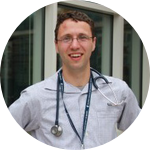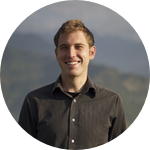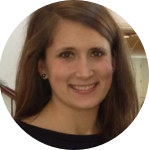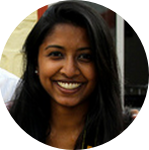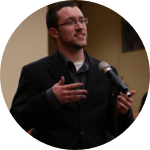About This Project
Implementation science research builds a body of evidence that can inform the design of appropriate health interventions and programs by identifying determinants of success and failure according to context. By integrating research with implementation, the resulting knowledge can spur dynamic and continuous improvement of public health programs and strategies for achievement of global health.Ask the Scientists
Join The DiscussionWhat is the context of this research?
Globally, impoverished "last mile" communities suffer needless barriers in obtaining healthcare. The public sector – the guarantor of health as a human right – is frequently of low quality and accessibility. The poor thus lack access to effective care, and frequently rely on unregulated, expensive private sector providers; in South Asia, the poor often receive 90% of their care from such providers. We have developed a mobile phone system for community health workers in rural Nepal to rapidly publish disease data together with metrics of government primary care quality. This facilitates surveillance and responsiveness of public healthcare. We will test the impact of this system on maternal and child health through a randomized controlled trial and implementation science methodology.
What is the significance of this project?
Our model addresses the lack of real-time data on public sector service delivery in impoverished communities and the lack of avenues for citizens to advocate for improvements in these services. We've developed a scalable system that community health workers can use for disease surveillance and to help improve the responsiveness of public sector to provide the care its citizens require. Over the last 6 years, Nyaya Health has played an active role in ensuring that the right to healthcare is realized in rural Nepal. We've treated over 120,000 patients in the past four years, employed over 161 Nepalis, and have done all of this through a meaningful partnership with the Nepali government. We take an implementation science approach with our programs to rigorously study our impact-- and our failures-- and to document them over open access media for the global community.
What are the goals of the project?
We need funding to provide incentives for our local community health workers, and to support local researchers working on the study. We also need funding to cover the costs of implementing our research. Our goal in implementation science is to test new ideas, and then rapidly publish our work so that we can bring the most successful ideas to scale globally. If successful, we could be laying the foundation for a health systems strengthening protocol for others working in such regions globally.
Budget
Nyaya Health maintains an active blog, and has a team devoted to public interface. We plan to upload videos and pictures, and, like all of our research at Nyaya Health, publish our results on our open wiki page. We are always looking for ways to deliver on our commitment to transparency, and as such would be open to providing whatever can help achieve this in collaboration with Microryza.
The budget outlined above accounts for the implementation of the mobile-device surveillance system to be put in place in Achham District, Nepal for one year spanning 12 village development committees (VDCs).
Personnel includes recruitment, salary, and benefits of central-level staff and Community Health Worker Leaders that are part of Nyaya Health’s Community Health Department. Additionally, incentives for Community Health Workers to collect data on a weekly basis are included.
A technology consultant will be required to integrate the Medic Mobile database system to an external-facing platform to be used by our local staff, clinical and public-health leaders, and partners. Costs include the expenses related to a 3-week trip to Nepal.
Lastly, other expenses includes the mobile phone, internet, electricity, and printing costs associated with conducting the trainings and implementation of the mobile-device surveillance system.
Meet the Team
Affiliates
MD, PhD, Yale University School of Medicine
Team Bio
Duncan Maru, MD, PhD earned his BA from Harvard University in 2002, and his MD/PhD from Yale University School of Medicine in 2009. In 2006, he co-founded Nyaya Health, an organization that operates a hospital-based clinical and public health services in rural western Nepal. He is also the co-founder of Equity Editors’ Association, a network of technical editors committed to improving global health through professional editing. His research experience includes community-based clinical studies of HIV interventions among injection drug users.Dr. Duncan Maru
Duncan Maru, MD, PhD earned his BA from Harvard University in 2002, and his MD/PhD from Yale University School of Medicine in 2009. In 2006, he co-founded Nyaya Health, an organization that operates a hospital-based clinical and public health services in rural western Nepal. He is also the co-founder of Equity Editors’ Association, a network of technical editors committed to improving global health through professional editing. His research experience includes community-based clinical studies of HIV interventions among injection drug users.
Mark Arnoldy
After nearly dying on his first trip to Nepal from a lack of access to health care following a severe allergic reaction, Mark was afforded a rare glimpse of empathy with the millions of Nepalis denied care in their own country. That served as a critical incident for him, and led him to commit to a life of building health systems alongside Nepal’s poorest through Nyaya Health. Prior to Nyaya Health, Mark founded NepalNUTrition to treat malnourished children and advised the creation of two blended value businesses in the United States — Nut-rients and 5 Pound Apparel – that fund nutrition programs in Nepal. He graduated Summa Cum Laude from the University of Colorado at Boulder, attended Harvard’s Global Health Effectiveness Program, and is a former Fulbright Scholar to Nepal. Mark is a Cordes Fellow, Bluhm/Helfand Social Innovation Fellow, and has been published in the Global Post, Change.org, the Nepali Times, and Kathmandu Post.
Project Backers
- 30Backers
- 54%Funded
- $5,360Total Donations
- $178.67Average Donation
